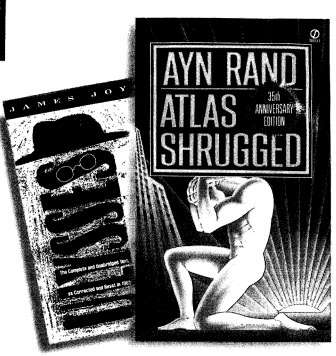Netbrow

Quick, what's the century's greatest English-language novel? The Modern Library chose James Joyce's Ulysses this summer to crown its list of the 100 best such novels; Joyce was followed by a cascade of Faulkners, Conrads, Fitzgeralds, and others whose work illustrates modernism's discontents. Naturally, this list was accused of being too male, too American, too old, and too highbrow.
But The Modern Library also hosted an alternative list on its Web site (www.randomhouse.com/modernlibrary/100best/), one open to everybody's votes. The results weren't scientific, but they seemed to reflect a body of taste, one that The New York Times cleverly labeled "netbrow." At the least, the readers' list reflected a vastly different vision of the concluding century.
Ayn Rand's Atlas Shrugged won the poll (three other Rand books made the list); its most serious challenge came from Frank Herbert's Dune. Joyce, Fitzgerald, and other classic authors were present, but what marked the readers' choices were authors nearly unknown to the literary establishment: Charles De Lint, Charles Portis, and Alison Spedding, among others.
Here are books that deal in imagination, pleasure, possibility, and ideas. Invited to make their choice, readers cited work, good and bad, that expanded their own choices. If "netbrow" is an emerging taste class, this list marks a notable stage in self-definition.
